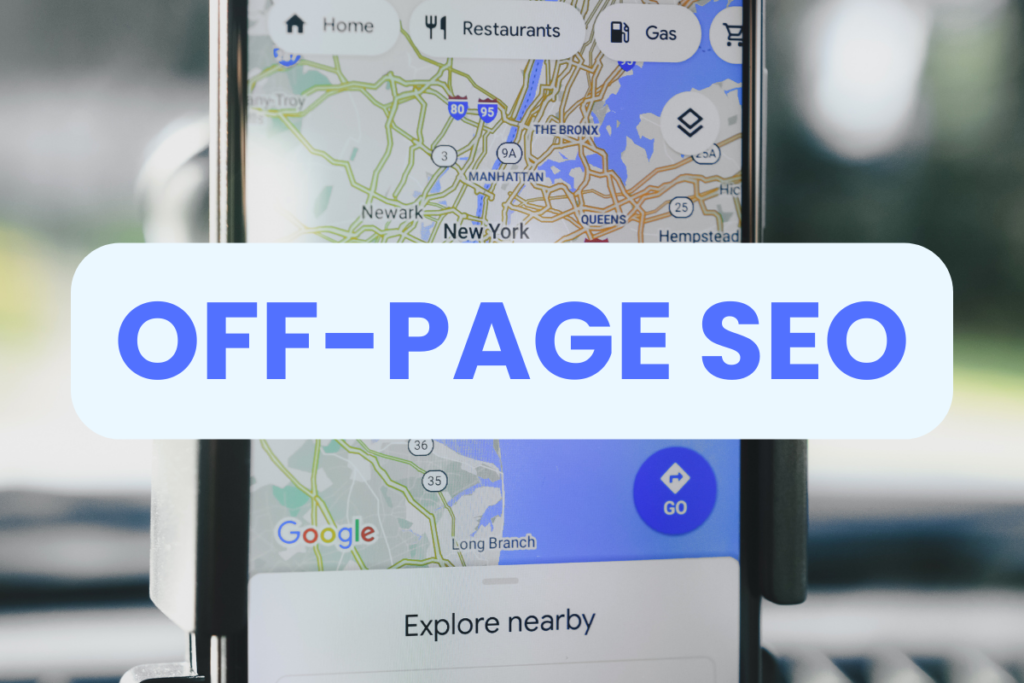What Is The Difference Between On-Page And Off-Page SEO?
Search engine optimization (SEO) is split into two main categories: on-page SEO and off-page SEO. Both are vital for a successful SEO plan, but they focus on different areas. By understanding the roles of on-page and off-page SEO, you can develop a more comprehensive strategy that covers all aspects of search engine optimization.

Understanding SEO Categories
On-Page SEO: Control What’s On Your Site
On-page SEO is all about improving parts of your website that you can control. This includes things like content, images, and internal links. By optimizing these elements, you can ensure that your website is more appealing to search engines and users. On-page SEO involves a range of activities, from keyword research and content creation to technical SEO practices like improving site speed and ensuring mobile-friendliness.
Off-Page SEO: Boost Your Site’s Authority
Off-page SEO, on the other hand, is about building your website’s authority through external efforts. This often involves creating content that earns backlinks from other websites. Off-page SEO activities help to establish your site as a trusted and authoritative source in your industry. This can lead to higher search engine rankings and increased organic traffic. Off-page SEO includes various tactics such as link building, social media engagement, influencer outreach, and public relations.
What Does On-Page SEO Involve?
On-page SEO covers everything you can do on your website to improve your rankings. This includes optimizing:
- Keywords in Your Content: Researching and using relevant keywords in your content to match what users are searching for.
- Meta Descriptions and Titles: Writing compelling meta descriptions and titles that encourage users to click on your site in search results.
- Header Tags and Images: Using header tags (H1, H2, H3) to structure your content and optimizing images with descriptive alt text.
- Internal Links and URL Structure: Creating a logical internal linking structure and using clean, descriptive URLs.
What Does Off-Page SEO Involve?
Off-page SEO focuses on actions outside your website to enhance your rankings. The main factor is earning backlinks from other sites. Other important elements include:
- Backlinks: Acquiring high-quality backlinks from reputable websites that signal to search engines that your site is trustworthy.
- Social Media Activity: Engaging with users on social media platforms to increase your site’s visibility and attract more visitors.
- Public Relations Efforts: Getting featured in industry publications, blogs, and news sites to build your site’s authority and reach a broader audience.
Why Focus on On-Page SEO First?
Both on-page and off-page SEO are crucial, but you have more control over on-page factors. Starting with on-page SEO can give you a strong foundation for your SEO strategy. By optimizing the elements on your website first, you can ensure that your site is ready to benefit from off-page efforts. Effective on-page SEO can improve user experience, increase engagement, and lead to higher search engine rankings.

Why On-Page SEO is Essential
How Search Engines Use On-Page SEO
Search engines look at keywords and other on-page elements to decide if a page matches what users are searching for. If your page is relevant and helpful, search engines like Google will show it to users. On-page SEO helps search engines understand the content and context of your pages, which can improve your site’s visibility in search results.
Google’s Focus on User Experience
Google’s algorithm changes often, but one thing remains constant: the focus on user experience. Google suggests creating “people-first content,” meaning valuable content that meets user needs. This approach prioritizes content that provides real value to users, leading to better engagement and higher rankings.
Improving On-Page SEO
To align with on-page SEO best practices, you should:
- Use Relevant Keywords Naturally: Incorporate keywords in a way that feels natural and enhances the readability of your content.
- Write Clear and Informative Meta Descriptions: Create meta descriptions that accurately describe the content and entice users to click.
- Use Header Tags to Structure Your Content: Organize your content with header tags to make it easier for users and search engines to navigate.
- Optimize Images with Alt Text: Add descriptive alt text to images to improve accessibility and help search engines understand the content.

Why Off-Page SEO Matters
Building Your Site’s Reputation
Off-page SEO helps build your website’s reputation. Sites with strong reputations tend to rank higher because search engines see them as more trustworthy. By focusing on off-page SEO, you can enhance your site’s credibility and authority, which can lead to better search engine performance and increased traffic.
Importance of E-A-T (Expertise, Authoritativeness, Trustworthiness)
Search engines look for sites that show expertise, authoritativeness, and trustworthiness (E-A-T). Off-page factors like backlinks, reviews, and recommendations help demonstrate E-A-T. Establishing your site as an authoritative source in your field can significantly improve your rankings and attract more visitors.
Major Role in Ranking
Off-page SEO is critical because it significantly impacts your site’s ability to rank well in search results. By earning high-quality backlinks and positive reviews, you can improve your site’s standing in the eyes of search engines and users alike.
Effective Off-Page SEO Techniques
Here are five effective off-page SEO techniques to enhance your site’s authority and organic traffic:
- Link Building: Earn backlinks from reputable sites by creating valuable content that others want to link to.
- Content Marketing: Produce high-quality content that attracts shares and links from other websites.
- Local SEO: Optimize your site for local searches by creating and managing a Google My Business profile and obtaining local citations.
- Reviews: Encourage satisfied customers to leave positive reviews on various platforms, enhancing your site’s credibility.
- Events: Host or participate in events to increase your site’s visibility and attract backlinks from event listings and coverage.
FAQs
What is On-Page SEO? On-page SEO refers to optimizing various elements within your website, such as content, images, and internal links, to improve your search engine rankings.
What is Off-Page SEO? Off-page SEO involves activities outside your website, such as earning backlinks and engaging on social media, to build your site’s authority and improve its rankings.
Why is On-Page SEO Important? On-page SEO is important because it helps search engines understand your content and determine its relevance to user searches, leading to higher visibility in search results.
Why is Off-Page SEO Important? Off-page SEO is crucial for building your site’s reputation and authority, which can result in higher search engine rankings and increased organic traffic.
How Do I Start with SEO? Start with on-page SEO by optimizing the elements within your control, then gradually incorporate off-page techniques like link building and content marketing to enhance your site’s authority.
Both on-page and off-page SEO are essential for a successful SEO strategy. While on-page SEO involves optimizing elements within your control, off-page SEO focuses on building your site’s authority through external efforts. By starting with on-page SEO and gradually incorporating off-page techniques, you can create a well-rounded and effective SEO strategy.
For more personalized advice or to get started with optimizing your website, contact Eclipse today. We are here to help you achieve your SEO goals and improve your online presence.
